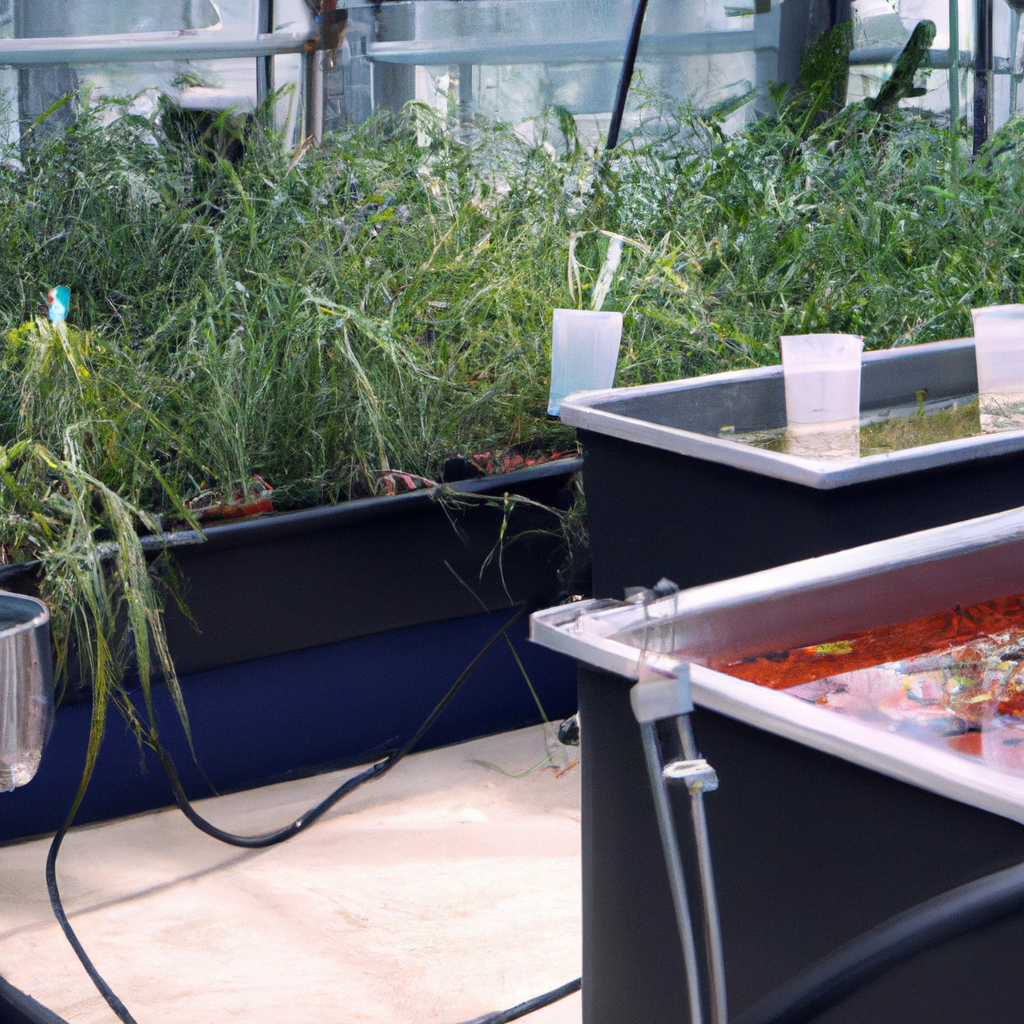Aquaponics is a sustainable and innovative method for urban farming that combines hydroponics and fish farming. This system can produce high-quality and fresh food without using harmful pesticides or fertilizers. In this article, we will explore how aquaponics works in urban farming and its benefits over traditional farming methods.
What is Aquaponics?
Aquaponics is a closed-loop system that utilizes the symbiotic relationship between fish and plants. Fish waste produces nutrients that are then used by plants to grow. The plants, in turn, filter the water for the fish. This cycle creates a sustainable and eco-friendly system that requires minimal inputs.
How does Aquaponics work in Urban Farming?
Urban farming is becoming increasingly popular in cities as a way to produce fresh and healthy food. However, traditional farming methods are not practical in urban areas due to a lack of space and resources. Aquaponics offers a solution to this problem by using vertical and indoor farming techniques.
Vertical farming is the practice of growing plants in stacked layers, using artificial lighting and controlled environments. This method allows for high-density farming and efficient use of space. Aquaponics can be integrated into vertical farming by using the nutrient-rich water from fish tanks to nourish the plants.
Indoor farming is another method that can be used in urban areas. This technique involves growing plants in a controlled environment without soil and using artificial lighting. Aquaponics can be integrated into indoor farming by using a recirculating system that filters the water and provides nutrients to the plants.
Benefits of Aquaponics in Urban Farming
1. Sustainable Agriculture
Aquaponics is a sustainable method of farming that uses fewer resources and produces less waste than traditional farming methods. It eliminates the need for harmful pesticides and fertilizers, making it an eco-friendly alternative.
2. High-Quality Food Production
Aquaponics produces high-quality and fresh food that is free from harmful chemicals. It also allows for year-round production, making it a reliable source of food for urban areas.
3. Efficient Use of Space
Urban farming using aquaponics allows for high-density farming, making efficient use of limited space. Vertical and indoor farming techniques can produce large amounts of food in a small area.
4. Reduced Water Usage
Aquaponics uses a closed-loop system that recirculates water, reducing water usage by up to 90% compared to traditional farming methods.
5. Fish Farming
Aquaponics also allows for fish farming, providing a source of protein and additional income for urban farmers. The fish waste provides nutrients for the plants, and the plants filter the water for the fish, creating a symbiotic relationship.
Challenges of Aquaponics in Urban Farming
While aquaponics offers many benefits, it also poses some challenges for urban farming.
1. Initial Investment
Aquaponics requires an initial investment in equipment and infrastructure. The cost of setting up an aquaponic system can be high, making it challenging for small-scale farmers to adopt this method.
2. Technical Knowledge
Aquaponics requires technical knowledge of fish farming and hydroponics. Farmers need to learn how to balance the nutrients in the system and maintain the water quality.
3. Energy Usage
Aquaponics requires energy to power the pumps, filters, and lighting systems. This energy usage can be high, increasing the carbon footprint of urban farming.
Conclusion
Aquaponics is a sustainable and innovative method for urban farming that combines hydroponics and fish farming. It offers many benefits over traditional farming methods, including high-quality food production, efficient use of space, and reduced water usage. However, it also poses some challenges for urban farming, including the initial investment, technical knowledge, and energy usage. Overall, aquaponics has the potential to revolutionize urban farming and provide fresh and healthy food for urban communities.







